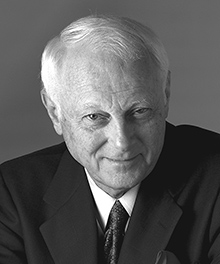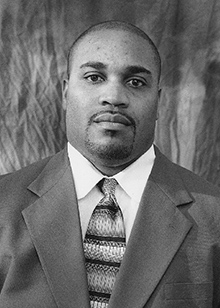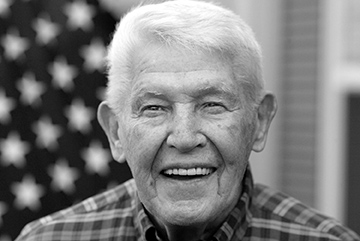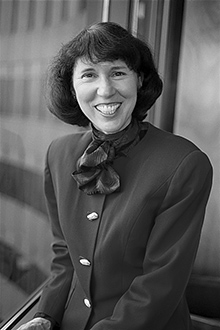The first U.S. intercollegiate sporting event was a crew race between Harvard and Yale held August 3, 1852. Harvard won the two-mile race, but the team did it by adding some men who were not even enrolled in the college.
“The real world of college sports has always had major corruption,” said Indiana University Professor Murray Sperber, author of four books on the conflicts between academics and athletics at U.S. colleges and universities.
“It’s getting closer to professional sports all the time,” Sperber added in a press interview promoting his latest book, Beer and Circuses: How Big-Time College Sports Is Crippling Undergraduate Education. “It’s getting more difficult for athletes to get a meaningful education.”
Sperber had to go to court to get Big Ten universities to open the books of their sports departments. What he found was that many programs are a drain on the academic resources of their schools. Out of 115 Division I programs in the NCAA, only 40 are not subsidized by taxpayer dollars or student fees. The UW is one of the 40 self-supporting programs.
In addition, he says, the impression that schools are raking in millions from TV revenues and merchandise royalties can backfire. “I think one of the problems with public support of American schools is that the public believes that these schools are making fortunes from college sports,” he said in the interview.
While some colleges bask in the glow of a winning sports program, “that sword can swing back at you,” he added. Prestigious universities across the nation have been stung by recent scandals and NCAA sanctions, including Michigan, Minnesota, Cal-Berkeley and UCLA. With the revelation of high stakes gambling on NCAA tournaments by former UW Football Coach Rick Neuheisel and recruiting infractions in Husky basketball, Washington’s reputation is also being hurt.
To put the role of athletics in perspective, the staff of Columns contacted former coaches, players, presidents, faculty and alumni, asking a series of questions. Here is a summary of their responses.
William P. Gerberding
 President Emeritus William P. Gerberding is the longest serving president in UW history. During his 16-year tenure, the UW survived serious budget cuts, launched its first major fund drive and saw its faculty receive four Nobel Prizes. It also suffered severe sanctions from the Pac-10 and NCAA for lack of “institutional control” over its football program. After retiring in 1995, Gerberding has served on many public and corporate boards and is currently chairman of the board of the Seattle Opera.
President Emeritus William P. Gerberding is the longest serving president in UW history. During his 16-year tenure, the UW survived serious budget cuts, launched its first major fund drive and saw its faculty receive four Nobel Prizes. It also suffered severe sanctions from the Pac-10 and NCAA for lack of “institutional control” over its football program. After retiring in 1995, Gerberding has served on many public and corporate boards and is currently chairman of the board of the Seattle Opera.
What should be the role of sports at the UW?
It should be an undertaking that focuses on the welfare of the students, both the participants and the non-participants. Intercollegiate sports has become such a prominent part of collegiate life, even the non-participants have a stake in it. Many take a great deal of pleasure in it. Students develop a loyalty for a variety of reasons and one of them has been intercollegiate sports.
Has the UW’s reputation been hurt by recent sports scandals?
Oh sure. That is always the case, but it is a risk and a cost of participation in intercollegiate athletics. The idea is to try to minimize and possibly eliminate any infractions.
Does a winning or losing program affect the UW’s ability to attract faculty or students?
Probably not much. It is hard to measure, but there is little relevance for faculty recruitment. It may have a marginal effect on undergraduate applications.
Why do you think university sports programs have so many problems following NCAA rules?
I think it’s easy to exaggerate the amount of problems institutions are having. We have hundreds of people involved in these programs at each school, and very few of them become involved in activities that violate the rules. The truth is that the temptations to do so are considerable for many of the coaches and players. Look at the rest of the world. Temptation is not always resisted. Look at the business world or the political world; the temptation to go outside the rules of the game is powerful.
Should a coach’s or player’s character play a prominent role in his or her job? Does character matter? Would a university want a coach of good character who doesn’t win?
Character is essential, a prerequisite. Having someone with a flawed character is simply unacceptable. Beyond that, in a revenue sport, institutions care about winning. It is an essential. At the University of Washington, we do not subsidize intercollegiate sports. If we took the very scarce public subsidy of the University and instead of using it for academic purposes, used it to subsidize our football program, there would be a lot of outcry and disapproval.
Are the punishments for rules violators too strict or too lax?
It depends on the case. Regarding the most famous case in UW history, the penalties imposed on our football program in the early 1990s, they were highly disproportionate to the offense. We were shabbily and unfairly treated by the conference and the NCAA. Other institutions with comparable infractions got off much lighter. There are other cases where institutions have just had a slap on the wrists. In a way, it is like the criminal justice system. Each case is different. There is no consistency.
Why put so many resources into what some say is a training campus for pro sports? Is it worth it, given the scandals that keep occurring?
I don’t think the University of Washington has any real choice. It has to run an intercollegiate sports program. I think it is a good thing. Anyone who thinks it should be disbanded, well, that’s inconceivable. It’s good for the student-athletes, it’s good for the students, and it plays some role—although it is easy to exaggerate—in giving the University a favorable reputation. On the whole it’s been good for the University. We have a tiger by the tail. We have to learn how to ride that tiger. We can’t get off.
Greg Lewis
 An All-American running back on legendary Husky teams coached by Don James, Greg Lewis, ’94, was the 1990 Pac-10 Offensive Player of the Year and finished seventh in that year’s Heisman Trophy voting. He went on to an NFL career with the Denver Broncos before returning to the UW as the alumni relations manager for intercollegiate athletics.
An All-American running back on legendary Husky teams coached by Don James, Greg Lewis, ’94, was the 1990 Pac-10 Offensive Player of the Year and finished seventh in that year’s Heisman Trophy voting. He went on to an NFL career with the Denver Broncos before returning to the UW as the alumni relations manager for intercollegiate athletics.
What should be the role of sports at the UW?
It is an outlet for students who spend enormous amounts of time studying and focusing on academics. It also gives the University family a source of pride in the school that helps build camaraderie and lifelong affiliation to the school. This in turn helps with alumni involvement and giving.
Has the UW’s reputation been hurt by recent sports scandals?
Yes it has. As a former student-athlete, I can say that our school does a great job in adhering to and informing staff of the rules. It is unfortunate that individuals can take it upon themselves and ignore the rules and hurt everyone.
Why do you think university sports programs have so many problems following NCAA rules?
It all boils down to money. When so much money is involved, people are willing to cheat and take the chance of getting caught. Also, when there is so much money involved, egos tend to get large. When the big egos get involved, people think they can operate above the law.
Should a coach’s or player’s character play a prominent role in his or her job? Does character matter? Would a university want a coach of good character who doesn’t win?
Yes, character should and does matter. I do not, however, believe a coach would retain his or her job, nor should he or she, only because of high character. Winning is part of being a coach, so a coach must win. Because universities are institutions of higher learning, I believe all employees should be involved with grooming and setting a good example for young people. So my thought is, you need to win and be of high character to be a college coach.
Are the punishments for rules violators too strict or too lax?
I believe the person should suffer more than the school, however it is the responsibility of the school to govern its employees. I do believe that it is impossible for a school or its administrators to catch everything. As long as the school hands out appropriate punishment to the offenders after doing a good job of teaching the rules, I believe they have done all they can do.
Kate O’Neill
 Law Professor Kate O’Neill is vice president of the UW chapter of the American Association of University Professors and a member of the UW Faculty Senate. On the law faculty since 1993, her specialty is jurisprudence, intellectual property, and law and literature.
Law Professor Kate O’Neill is vice president of the UW chapter of the American Association of University Professors and a member of the UW Faculty Senate. On the law faculty since 1993, her specialty is jurisprudence, intellectual property, and law and literature.
What should be the role of sports at the UW?
I don’t attend or watch games regularly, but my sense is that teams can provide wonderful athletic and educational experiences for the student-athletes and that sports events are entertaining and community-building for all the constituencies of the UW—alums, students, faculty and administrators, and fans from Seattle and beyond. I also know that football, at least, is regarded as key to building alumni support and donations.
Has the UW’s reputation been hurt by recent sports scandals?
I think so. If nothing else, it casts doubt on our hiring judgments.
Does a winning or losing program affect the UW’s ability to attract faculty or students?
I doubt it has much impact on faculty recruitment. Perhaps it has some modest impact on students, although I suspect that most students come here because of UW’s academic and research reputations, as well as locale and in-state tuition.
Why do you think university sports programs have so many problems following NCAA rules?
I suppose competitive personalities, who are often lavishly paid, develop supersized egos and may regard themselves as above the rules. I am reminded of the saying: “Power corrupts, and absolute power corrupts absolutely.”
Does character matter? Would a university want a coach of good character who doesn’t win?
Absolutely. We are an educational institution first and foremost. Everything the University does, and everybody who works here, should model ethical conduct at all times. Obviously, it would be nice to have a coach of good character who also wins, but if there really is a choice between character and winning (which I very much doubt there is) then go for character. Character and the lessons it teaches last; wins come and go with the season.
Why put so many resources into what some say is a training campus for pro sports? Is it worth it, given the scandals that keep occurring?
Personally, I probably wouldn’t put the resources here, but I am a pointy-headed academic who, predictably, thinks that the University’s priorities should be student learning and research that benefits the public interest. Athletics, for me, are incidental, a sideshow of sorts, that can enhance the University but should not divert needed resources away from teaching and research.
Marv Harshman
 The UW’s men’s basketball coach from 1971 to 1985, Marv Harshman guided his teams to 246 victories, compiling a winning percentage of .628. His UW career included three NCAA tournament appearances and Pac-10 championships in 1984 and 1985. Prior to coming to the UW, Harshman was head coach at Pacific Lutheran University and Washington State.
The UW’s men’s basketball coach from 1971 to 1985, Marv Harshman guided his teams to 246 victories, compiling a winning percentage of .628. His UW career included three NCAA tournament appearances and Pac-10 championships in 1984 and 1985. Prior to coming to the UW, Harshman was head coach at Pacific Lutheran University and Washington State.
What should be the role of sports at the UW?
I don’t think the bottom line should be money. You can call me old school, and I don’t begrudge guys making a lot of money, but I always felt teaching was part of the job. When I coached at Washington State, I was part of the PE faculty. You had the athletes in your classes. You got to know them better. The head coach should be like a professor—not that they have to write a book or two, but be in that category, be a teacher. They even should have tenure.
Has the UW’s reputation been hurt by recent sports scandals?
Definitely, especially in recruiting. That’s going to hurt you for at least three years. In my own opinion, it could also hurt giving to the athletic program.
Does a winning or losing program affect the UW’s ability to attract faculty or students?
I don’t know about faculty but I think it does with students.
Why do you think university sports programs have so many problems following NCAA rules?
It’s a little difficult to follow because the rules can change. And there have been more problems today because of the bottom line. If you don’t go to the NCAA tournament in basketball, you are out in a few years. If you don’t go to a bowl game in football, you are facing the same situation.
Does character matter? Would a university want a coach of good character who doesn’t win?
If you had good character, it used to be that you had a longer chance for being successful. I don’t think you have that anymore.
Are the punishments for rules violators too strict or too lax?
They often punish the players and the coaches a number of years after those who committed the infractions are gone. Yes, the school is responsible, but it’s not really fair to the kids if they came after the rules were broken.
Why put so many resources into what is effectively a training campus for pro sports? Is it worth it, given the scandals that keep occurring?
For a young person, they get a lot of value out of it. They get a sense of discipline. Sure, you may lose a few people to bad influences, but for most athletes, sports brings out the best in people.
Trish Bostrom
 Trish Bostrom, ’72, was named to the Husky Hall of Fame in 1987 to honor her four years as a top player on the UW women’s tennis team. She also had an eight-year career as a professional tennis player which included the women’s doubles competition at Wimbledon. Now a Seattle attorney, Bostrom served as president of the UW Alumni Association in 2000-01 and has also served two terms on the Tyee Board and as president of the Big “W” Club.
Trish Bostrom, ’72, was named to the Husky Hall of Fame in 1987 to honor her four years as a top player on the UW women’s tennis team. She also had an eight-year career as a professional tennis player which included the women’s doubles competition at Wimbledon. Now a Seattle attorney, Bostrom served as president of the UW Alumni Association in 2000-01 and has also served two terms on the Tyee Board and as president of the Big “W” Club.
What should be the role of sports at the UW?
It’s an important role, a key role at the University. It creates leaders. You learn discipline, how to set goals and other leadership qualities. When you combine academics and athletics, you have all the elements to create leaders for the community.
Has the UW’s reputation been hurt by recent sports scandals?
Unfortunately, I would have to say yes. I would have liked to see the football situation reach an outcome quicker than it did. Will the UW survive and become stronger? Yes, I believe that the UW is one of the top universities in the U.S. The University will survive this and the athletic department will become even stronger. On the other hand, what about the reputation of the NCAA? Who is watching them? Who is holding them accountable?
Does a winning or losing program affect the UW’s ability to attract faculty or students?
I’d say in the long run it does have an effect. A winning program brings in donor dollars. It allows our athletic program to develop and grow—look at our new capital facilities and our scholarships. That allows us to recruit better athletes. Better athletes become better alumni who give back to their university. So, it is a circle of support.
Why do you think university sports programs have so many problems following NCAA rules?
There are many reasons. The NCAA rules are sometimes not clear. And the NCAA may not be training athletic departments enough about the rules. On the other side, college programs have become farm teams for the pros. There is so much pressure on coaches to win, on athletic directors to have a winning program. There many be overzealous alumni who want to win. They may push over the line.
Should a coach’s or player’s character play a prominent role in his or her job? Does character matter?
Character is critical. You are training young people. You are definitely a role model. Unfortunately, you may be of good character and have losing seasons. Eventually you will lose your job. Take Bob Bender (the former UW men’s basketball coach). He has great character. Barbara Hedges was extremely loyal. She gave him an extra season to turn the program around, even though she was getting great pressure to make a change. But eventually a person with great character must produce a winning record. Can they live by the rules and have a winning season? Yes, I believe they can.
Why put so many resources into what is effectively a training campus for pro sports? Is it worth it, given the scandals that keep occurring?
Yes, it is worth it. It is not just a training ground for pro sports; it is also a training ground for leaders for our community. Look at people like Carver Gayton or Norm Dicks. I’m not embarrassed to be an alumna. I’m sad for what happened. But the UW is a tremendous institution—one of the top in the country. It is a greater institution than any problem in the athletic department. When this is over, we will have a stronger University and a stronger athletic department. Adversity brings strength.
Norman Rose
Norman Rose is dean emeritus of UW Bothell and served for 28 years on the faculty of the UW chemistry department. He also chaired the UW Faculty Senate, was acting UW provost in 1993, and won a Distinguished Teaching Award in 1988.
What should be the role of sports at the UW?
It should be designed and function in a way that is for the students and complements the academic activity. It should be for the students the way the band is for the students and the French Club is for the students.
Has the UW’s reputation been hurt by recent sports scandals?
Sure. When there are allegations of lying and not following the rules, I cannot see how that helps the University.
Does a winning or losing program affect the UW’s ability to attract faculty or students?
I don’t think it is very significant in attracting faculty and I would say not very many students come to the University with one factor being the winning or losing records of the sports program.
Why do you think university sports programs have so many problems following NCAA rules?
I think you need to look at this issue in context. No newspaper is going to write about how a university has had a perfect record in NCAA compliance. The only thing we hear about is all the things that are wrong. How big a problem is it? I don’t have the answer. How many people cheat on their income tax, how many shoplift? Human beings being what they are, a few of us are going to break the rules from time to time. Obviously rule-breaking is not good. But are the statistics of NCAA infractions extraordinary? I don’t know.
Should a coach’s or player’s character play a prominent role in his or her job? Does character matter?
Does character matter in a president? Does it matter in a Boy Scout or Girl Scout leader, or in a bank loan officer? Of course character counts in any leadership position. That should be a Number 1 priority.
Why put so many resources into what is effectively a training campus for pro sports? Is it worth it, given the scandals that keep occurring?
The athletic department is self-supporting. The taxpayer’s money doesn’t go into the football coach’s salary. We are not doing this as part of the state’s spending.